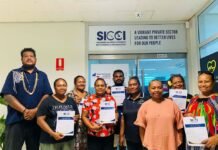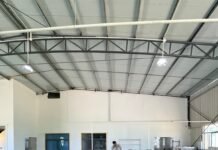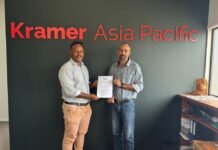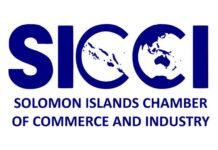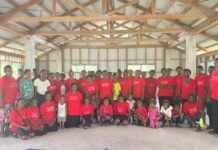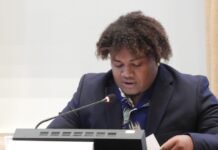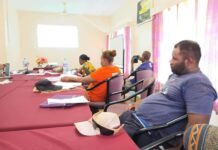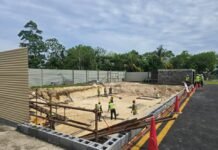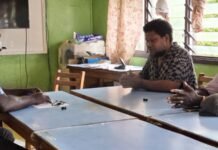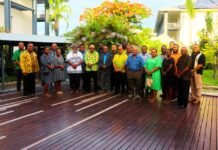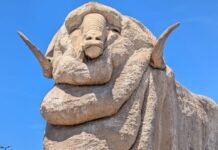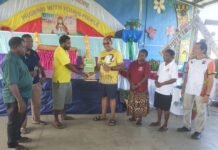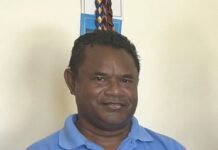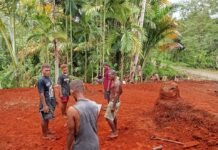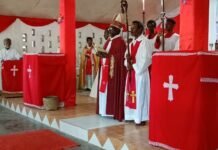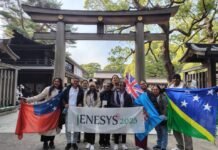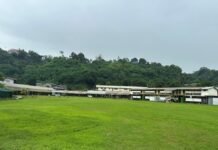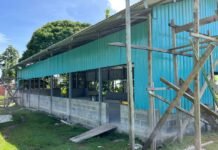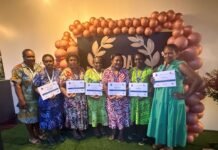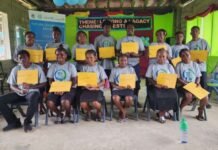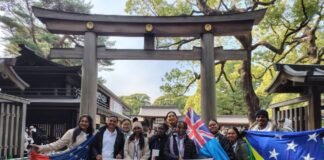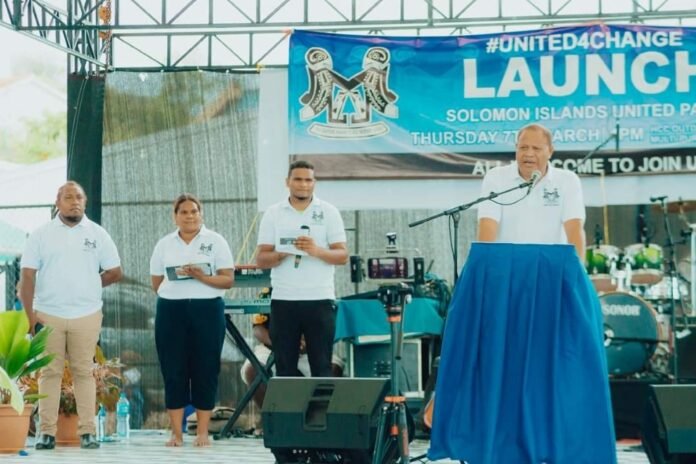
BY JOHN HOUANIHAU
THE United Party (UP) President, John Kwaita, described the current state of the party and the critical moment they find themselves in. With the upcoming elections fast approaching, Kwaita emphasized the importance of unity and strategic decision-making for the party to maintain its position in the political landscape.
Solomon Islands is on the crossroads again to choose the next government that will lead the country for the next four years, United Party President Kwaita told east Honiara residents during a campaign launch held at the new futsal court, Multipurpose Hall on Sunday, March 17.
With the upcoming elections on April 17, the UP President emphasized the importance of unity and strategic decision-making for the party to maintain its position in the political landscape.
“We are at a crossroads,” Kwaita said, “and the choices we make now will significantly impact the future of our party and the country as a whole. It is crucial that we come together as a united front and work towards our common goals.”
Kwaita acknowledged the challenges that the party has faced in recent months, including external pressures from other political parties. However, he remained optimistic about the party’s ability to overcome these obstacles and emerge stronger than ever.
The UP seeks fundamental reforms primarily in the following key priority areas of national interest: Complete dialogue on rethinking RCDF by 2025, complement outcomes of rethinking RCDF by 2026, and find mechanisms that allow MPs to focus on their mandate as legislators, not project managers, RCDF to complement national sustainable development priorities. allowing for regional approaches and joint programs, ensuring accountability of procurement and fund disbursements, strengthening anti-corruption laws, retrospective entry into force to allow for investigation of disbursement of public funds, including RCDF from four years ago, establishing institutions on good governance at SINU, reducing terminal grants to MPs and canceling tax exemptions on MP salaries, and reviewing Parliamentary Entitlement Commission membership.
Kwaita provided a reflection on the country’s historical journey before gaining independence in July 1978.
“I like to take us back to our history,” Kwaita revealed. “The British protectorate was entrusted with the responsibility of ensuring the safety and well-being of the Solomon Islands, not to colonize them.”
He continued: “Fiji was their colony. We were called the protectorate of the British. They only protect us. They don’t colonize us. Before the British came to look after the Solomon Islands, we had our own system of governance.
“Our cultures become the frameworks that guide us in governing our own affairs right across our islands. However, some of their rulings have gone against some of our styles of governance. But people willingly accept their rule despite the challenges and difficulties they face.
“So our country was so divided before our independence. But despite the challenges and disagreements between our regions, our founding fathers believe that our differences can be our strength, and the way forward is unity.
“Our independence was only handed to us. It is something we must thank God for. There has been no bloodshed. We do not fight for it. Many countries in the world fight for their independence. People die for independence.
“Now today, it feels like where we are now after forty-five years. We are at the crossroads of deciding what type of leadership we want. To be independent is good, but we are stronger together, and UP believed in that 45 years ago and still believes it today that we are stronger together.
“Our diversity is our strength; as it says, united we stand, divided we fall, which is also related to the UP motto, To serve man is to serve God,’’ he said.
The UP president said that the Solomon Islands gained their independence with good hands and leadership.
“Our agriculture sector was good. We never order rice from overseas because we grow our own rice. The production of rice at that time could be used to feed all of the Pacific. We had the largest cattle farms and production at that time,’’ he said.
He said that the country’s coconut plantation is the largest in the southern hemisphere, with a vibrant agriculture sector.
He highlighted that the government officials from the relevant authorities do not sit quietly, but on occasions they visit every farm and every province to make sure things are running properly.
“At that time, our currency is strong; SBD 1 is equal to AUD 1. That was the good old days of the Solomon Islands, from 1978 until 1986, when Cyclone Namu hit the islands, destroying our plantations and rice farms. After the hit of cyclone Namu, we lost a big part of the economy.
Mr. Kwaita further said that in 1990, logging was introduced, believing that it would help recover the economy; however, it has gone just the opposite, with people experiencing its impacts up until the year 2000. With all the frustrations, the Solomon Islands have the tension that actually puts the country on its knees.
“And from that year on, we have been experiencing problems and challenges until today. And so today, 45 years later, we reach another crossroads, and that is why UP has come up strong to pull together a new set of leadership that we believe will help rebuild, recover the economy, and set a straight path for the Solomon Islands,’’ he said.
However, he said that in order for the Solomon Islands to take a new step, citizens need to accept what the country has gone through in the past, change direction, and get back on track.






